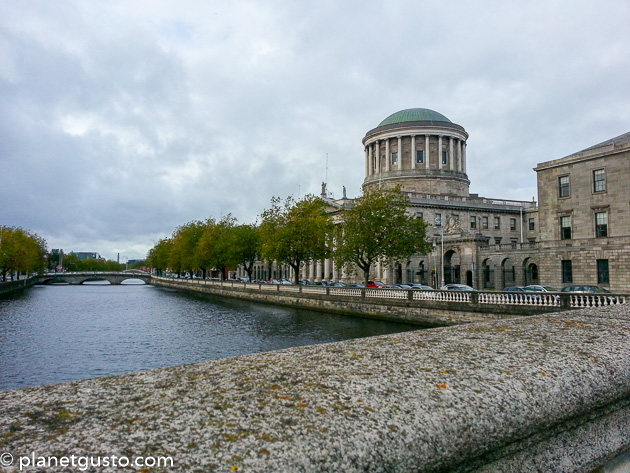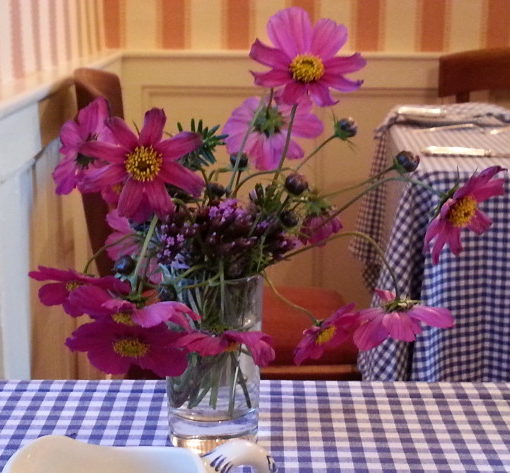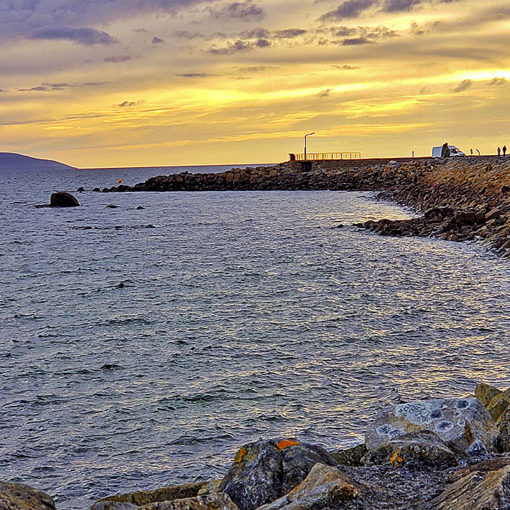Easter is next Sunday, and I thought long and hard about heading to Dublin for the centennial of The Easter Rising. But ultimately, I decided not to brave the fervent crowds, which will certainly descend upon Dublin this weekend for this momentous occasion in Ireland’s history. Instead I’ve gathered together a number of media sources so that I can celebrate vicariously.
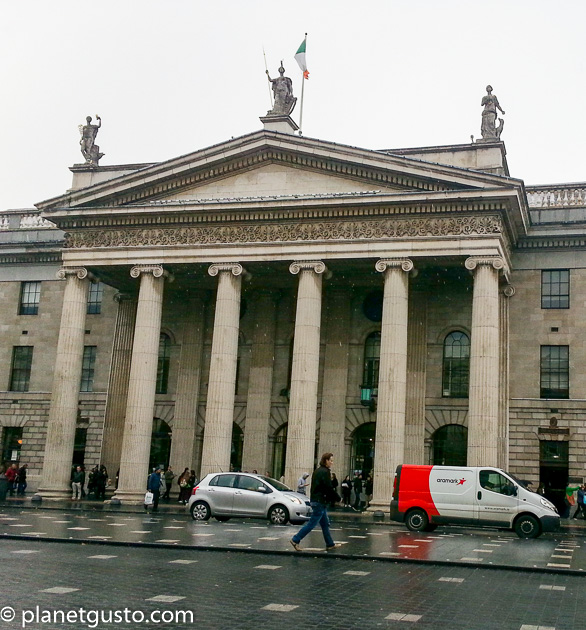
On Easter weekend 1916, passionate Irish rebels gathered in Dublin and strategically took over a number of government buildings to protest British occupation and to take back their country. After false starts due to problematic coordination, the melee finally began around noon on Easter Monday with the reading of the Proclamation of the Republic, announcing Ireland’s independence from Britain.

The battles lasted about a week resulting in hundreds of deaths, a majority of them civilians. The ultimate execution of 16 rebel leaders was a strategic mistake on the part of the British. Whereas the Irish rebels had not previously had the full support of their countrymen, the executions made them martyrs and turned the tide of Irish public support. Growing support escalated to full revolution and independence. Much of Dublin was left in ruins, including a fire at the courthouse which destroyed most records, making it difficult for many of us to track our Irish ancestral roots.

The 1916 Easter Rising was a pivotal event that ultimately led to the Irish Free State in 1922 and the exit of the British. Ireland didn’t become a fully independent Republic, however, until Easter 1949, save all but 6 counties in the north of Ireland, which still remain part of the United Kingdom.
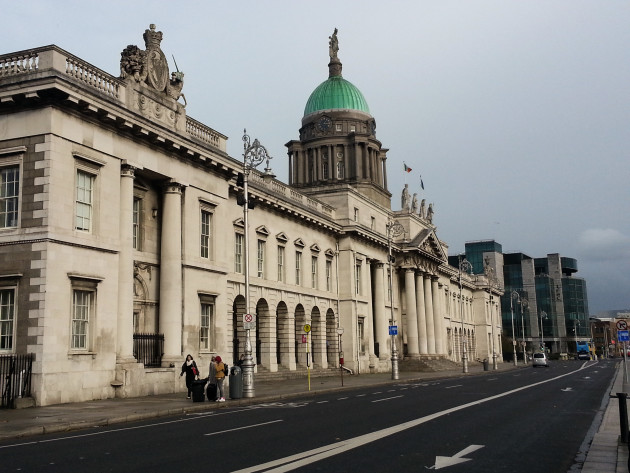
The saga of the Easter Rising is complex and tangled, rising out of centuries of tyrannical occupation by the British and recurring famines. Irish rebels had ties with sympathetic Irish Americans as well as Germans during the time the British contemplated entering World War I. Both supplied the rebels with guns and money.
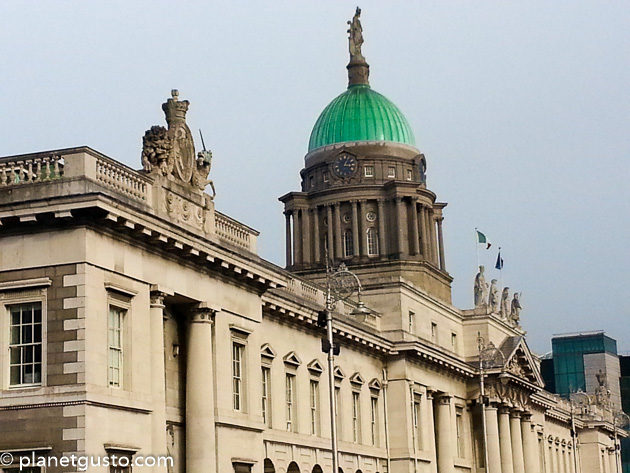
While the 1916 Easter Rising occurred on April 24, 1916 the event is always celebrated Easter weekend.
This list of virtual activities is hardly exhaustive, but it will certainly offer you an immersive Easter Rising experience and virtually propel you to Dublin, and maybe back in time.
Immersive History and Celebratory Easter Rising Activities
The official site of the Easter Rising Centenary provides history, biographies, maps, photos and videos.

Whether you will actually be in Dublin – or just want to live vicariously – if you love Ireland, you will find much here to entertain you. If you will be in Dublin though, check-out my Dublin Notebook which lists some of my favorite places, food, and activities.
Get a taste of recent Centenary events on Youtube…
Speech of James Connolly-Heron – Great, great grandson on James Connolly speaks of preservation of historic sites and more.
Gerry Adams Speech – Sinn Fein leader Gerry Adams commemorates the Easter Rising.
Rebel leaders escaped to this building on Moore Street after the GPO was destroyed. National heritage status – in the process of extending that.

The court battle continues during the assessment and so the buildings will not be open. This short video from 2013 shows the plans for turning the buildings into a small museum and research center.
Proclamation

At a few minutes after noon on Sunday, rebel leaders stood outside the GPO and announced to Dublin and the world that it was the provisional government of Ireland, and it intended to wrest independence from its British oppressors.
Google partnered with the Ireland State Centenary Programme to create a Virtual Easter Rising Experience using their streetview map that whips you through the streets of Dublin to 22 key Rising sites. When you arrive at the modern-day site, you have the option of clicking to open historic photos, more narration, and a full map to get context for where you are. The program is narrated by Colin Farrell.
Century Ireland 1913 – 1923 – The Easter Rising
In conjunction with Boston College, RTE creates an online event covering the pivotal years in the battle for Irish independence from 1913-1923. Key events focus on the 1913 Dublin Lockout to the 1916 Rising to the 1922 Irish Free State.
Historical Summary of The Easter Rising
This site provides a concise overview of events and participants in an easy-to-navigate format.

Lest anyone think it was only men who supported The Easter Rising, women had a distinct role in the fight for independence. Check out this fascinating Facebook page devoted to the subject. The Easter 1916 page provides a nice overview of key women involved in this historic event.
The National Library of Ireland always put on interesting exhibitions, including photographs that illustrate Irish history in a compelling manner. The site also has an online exhibition component, as well as other information.
Covers all things Irish from the North America perspective, including news, nostalgia, ancestry, and history – including some fun articles on The Easter Rising.
Media: Movies – TV – News – Radio
RTE: Ireland’s National Television and Radio Broadcaster
I’m particularly excited that RTE has some of its programming available online for both Television and Radio. You can also download mobile apps for both TV and Radio via your app store. You will be able to consume news programs and specials on Easter Rising history and events. Thoughtfully, RTE has created an Easter Rising Hub. Can’t wait to dig into this one!


Theatrical Films
Some find this version of the story to be a bit lightweight and not one that is as balanced on Collins’ character or his role in Ireland’s independence compared to other leaders. The film highlights the fractured politics amongst the Irish between the Nationalists and Free State supporters. While this film starts with The Rising and follows events through the establishment of the Free State in 1923, it still provides a more than watchable historical vehicle that provides some entertaining context for the various political perspectives of the day. Starring Liam Neeson as Michael Collins.

The Wind that Shakes the Barley
A heart-wrenching, bleak, and deeply compelling film, The Wind that Shakes the Barley focuses on the Irish fight for independence in the aftermath of the 1916 Easter Rising. It is an excellent film that provides the complex context of not only the war with Britain, but Irish against Irish. Listen to the haunting ballad that was written about the 1798 Irish Rebellion. Starring Cillian Murphy. Check-out the trailer.
Unfortunately it appears that this new film will not be released until 2017, so it’s something to look forward to. The story follows the life of political activist and rebel leader Seán Mac Diarmada (aka Seán MacDermott), who was one of the seven signatories to the Proclamation at the Easter Rising. Check out “The Rising” Facebook page to follow the film’s developments as well as interesting videos.

Documentaries
Look for this now! This 3-part Irish documentary narrated by Liam Neeson is being aired on PBS in America – search for it to find where it airs in your location. The series covers the events of the Easter Rising through both vintage and modern footage, and includes the role of Irish Americans’ in The Rising.
The History of Ireland – The Rising
This multi-part series on the history of Ireland, focuses one full episode on The Easter Rising.

James Connolly: Ireland’s Greatest (RTE Docmuentary)
This TV series, found on YouTube, focuses various episodes on Rising leaders. This one is on Connolly. Other Easter Rising rebel leaders can be found in other episodes.

Reading: Literature & Non-Fiction
Poem: Easter 1916 – W.B. Yeats
The epic poem, which gave birth to the iconic line “A Terrible Beauty is Born,” questions whether the price of the Rising was worth the lives it cost.
1916 The Easter Rising – Tim Pat Coogan
A well-regarded history of the even, by Irish historian Coogan. May be difficult to find.
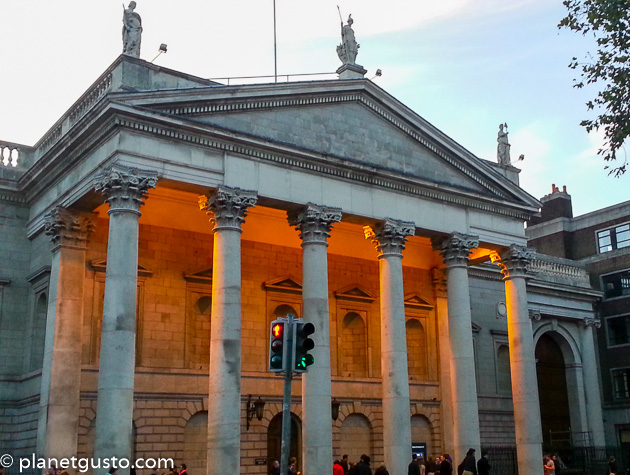
A Star Called Henry – Roddy Doyle
Vivid and bawdy, A Star Called Henry is the first in the Henry Smart trilogy that follows Henry from birth through the 1916 Easter Rising.
Rebels: The Irish Rising of 1916 – Peter De Rosa
Another well-regarded history told in a historical-fiction style.
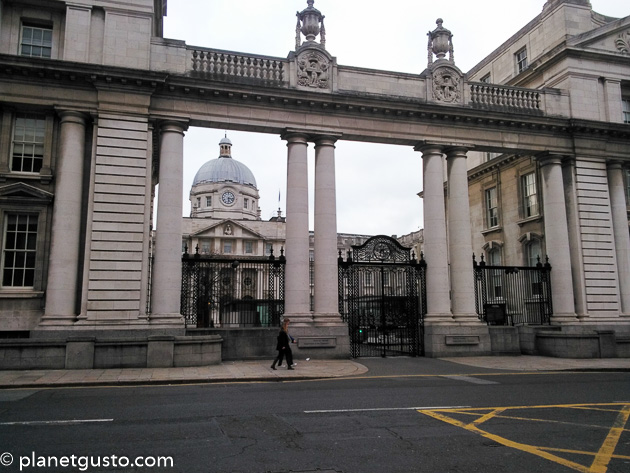
10 Dublin Instagram Feeds
Immerse yourself in Dublin via Centenary activities, street scenes, food, and of course…pubs with these great Instagram feeds.
The official site of the Ireland Centenary program.
Photos from all around Dublin.
History, architecture, and charm as viewed through intriguing Dublin signage.
@picturethisdublin
Street scenes from Dublin, often from really cool angles.
Wander off-the-beaten-path and explore The Liberties neighborhood, generally just west of St. Patrick’s Cathedral.
View all kinds of Dublin life from street scenes to street art to scenic water views.
A “visual love story” with the city of Dublin through colorful photos.
@lovedublin
More compelling Dublin life with street life, art, and architecture.
This feed will make you want to spend your entire time in Dublin lounging in charming, cozy pubs.
@gruelguerilla
Gruel Guerilla does pop-up dinners and events and hangs out in modern cozy cafes, tasty looking restaurants, and good markets.

Easter Rising Ballads & Protest Songs
As you immerse into a book or online history of the Easter Rising, you may want to have some appropriate music in the background to set the right mood. You won’t have a difficult time finding songs – some are in album form as well as individual on Amazon and iTunes – some songs are free if you have a Prime account. Or check-out an Irish protest Pandora channel.

Not just one of my favorite Irish songs, one of my favorite songs – period. There are many lovely versions, but Sinead O’Connor with The Chieftains is probably my favorite. Written by parish priest Canon Charles O’Neill, this hauntingly beautiful anthemic ballad expresses that it would be better for Irish to die for the cause of fighting for their own country than for Britain in WWI.
The story of one of the rebel leaders. There are a variety of good versions, but I particularly like the version by the Black 47, which has a bit of a grungy rock vibe to it.
Row in the Town
Ballad of Rising events and leaders.
The Wolfe Tones sing of the battle that took place in Knockanure with the Black & Tans, post Easter Rising.
The Dubliners sing about running away to join the IRA.
The Wolfe Tones sing about Roger Casement who was executed for his role in meeting German ships in Kerry to procure weapons for the Rising.
Sung by Jim McCann about the wife of Joseph Plunkett, Irish rebel leader. Grace married Joseph in his jail cell just hours before his execution.
The Boys of the Old Brigade
A rallying protest song about joining the IRA sung by The Wolfe Tones.
Performed by Declan Hunt, Arbour Hill is the place where the executed rebel leaders were buried in a mass grave. Today Arbour Hill is a monument and a place of remembrance.
Padraig Pearse
The Wolfe Tones perform this popular Easter Rising ballad about rebel leader Pearse.
Happy traveling…
